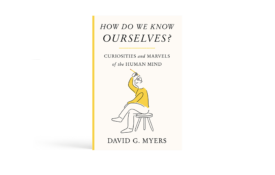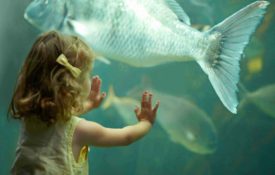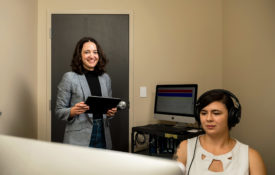-

Failure and Flourishing. Part 3 of 3 With David Myers
In the final discussion with social psychologist David Myers, APS’s Ludmila Nunes talks with him about the third section of his book, in which he applies his psychological insights to the larger world around us. Visit Page
-

Why Is Everyone Else Having More Fun? Part 2 of 3 With David Myers
Social psychologist David Myers joined Under the Cortex to speak about his new book and why we tend to think that everyone else is having more fun than us. Visit Page
-

How Do We Know Ourselves? Part 1 of 3 With David Myers
Social psychologist David Myers joined APS’s Ludmila Nunes to speak about his career, his new book, and how we really do know ourselves. Visit Page
-

Children, Creativity, and the Real Key to Intelligence
APS President Alison Gopnik writes that the contrast between the reasoning of creative 4-year-olds and predictable artificial intelligence may be a key to understanding how human intelligence works. Visit Page
-

What Music Does to Us
Amy Belfi from the Missouri University of Science and Technology joined APS’s Ludmila Nunes to speak about her career as a neuroscientist studying music perception and cognition as well as how poetry and other forms of art can impact the brain and behavior. Visit Page
-

Exploration and Risk-Taking: Hallmarks of Adolescence That Increase Well-Being
The role of exploration and risk taking in sustaining adolescent well-being and establishing social connectivity is the topic of a recent article published in Psychological Science. In this podcast, you’ll hear from the two authors: Natalie Saragosa-Harris and Catherine Hartley. Visit Page

